- Home
- Leigh Barker
Regret's Mission - Inspired by the great Bernard Cornwell Sharpe Page 5
Regret's Mission - Inspired by the great Bernard Cornwell Sharpe Read online
Page 5
Regret’s brother, Alan, had spent two very frustrating days while his battery hauled their guns up to where the enemy was, only to find they couldn’t see them over the slag heaps and the towns, or, after more dragging of guns, to discover they had already left. Two days of galloping around and digging in for nothing while the infantry and other batteries where having all the fun.
But now they were stationary and waiting for the Germans, who were coming for sure. Alan walked up to the road that ran above the turnip field in which 78th Battery Royal Field Artillery had dug in, and looked out across the valley to the town of Le Cateau off to the right. The railway line running north from the town was where they had been ordered to lay down fire when the enemy arrived.
He was excited at the prospect of putting into practice the skills he had learned during five years of training. It was barely dawn, and the valley was shrouded in mist, but he could hear them coming, like a low moan in the distance. His lips were dry, and he had to wipe the sweat from his palms on his jacket as he walked quickly back down to his gun on the right of the battery.
This was a bad situation. They’d always chosen a site well back from the infantry in training, usually on the reverse side of a slope or in a depression, but General Headlam, in charge of 5th Division’s artillery, wanted the guns up front to give the infantry close support.
Alan knew it was a throwback to the bad old days when the guns where out in the open and easy meat for enemy cannon and rifle fire. Everybody knew this was the wrong tactic, but the general was adamant. So Captain Bartholomew had been despatched to see to it that the guns were moved.
They had only just enough time to move the guns from the safety of a low hill out into the open on the forward-facing slope. Alan knew it was going to be bad.
As the sun rose, the mist lifted, and he could see the Germans massing on the opposite side of the valley beyond the railway embankment. There were thousands of them forming up to advance.
The order came down, and the gunnery commander, Lieutenant Goodman, gave the order to fire at forty-four hundred yards, well inside the 18-pounder’s six-thousand-yard range.
Alan looked up over the gunshield at the opposite slope and saw the close-packed infantry being torn apart by the battery fire of high-explosive shells, but before he could even register an emotion about his part in the slaughter, he was automatically reloading the gun.
He half wondered why the enemy artillery hadn’t opened up and instantly regretted it. German high-explosive shells rained down onto the trenches in front of the guns in a torrent of fire.
The stupidity of positioning the guns out in the open soon became apparent. Not only were they clearly visible to the enemy gunners, but the infantry was lying right in front of them and suffering deafening noise and concussion and being pounded by artillery fire intended for the guns.
He could see what was happening and what was certain to happen if they stayed out in the open, and looked around to see if the officers were also aware of it.
Lieutenant Goodman caught his eye for a moment and shook his head as if he could read his thoughts, then pointed at the gun, and Alan got the message. He sighed and resigned himself to the fact that this was where he was going to die. He wasn’t sorry, and that surprised him, but he was doing what he’d been trained to do. And it was the right thing to try to stop the bullies.
He looked up as an aeroplane flew overhead, just out of range of any eager rifleman. He’d seen only one plane before this and that was on the ground and looked flimsy and a little silly. This one was magnificent, sweeping above the smoke and slaughter like a bird. Suddenly the plane began to drop silver streamers over their heads. He couldn’t understand why they would do that; it was hardly going to cause the guns any problems. Then he saw the German battery that had been set up under cover of the mist on the farm overlooking their left flank. He knew this was worse than bad. From their flank position, the German gunners could see the whole trench and the guns behind it. He turned, waved at the lieutenant, and pointed up at the farm, but it was already too late as the first ranging shot fell among the guns, killing Lieutenant Goodman instantly.
The significance of that first ranging shot landing right among them did not escape Alan; it was the aeroplane and its silver streamers marking their position. But there was nothing he could do. His orders were to load the gun, and load it he would.
The first salvo from the farm enfiladed the 11th Battery on Alan’s left. He took a second to look across and saw bodies and bits of bodies scattered around the broken guns.
The German infantry were still coming despite the massive casualties the guns had inflicted. Now the Suffolks and King’s Own Light Infantry repeated what the Fusiliers had done at the Nimy canal. Rapid and deadly accurate fire cut the advancing troops to pieces, laying them down in lines across the grassy slope.
A hurricane of artillery fire swept the trenches and the guns from the front and from the left. Alan’s head pounded, and his nose bled, but he continued to load. Gun after gun was knocked out, their crews turned to bloody horror by high explosive and shrapnel. It wouldn’t be long, he knew that.
He barely had time to think that thought before his gun was hit, and he was dead.
He knew he was dead because he could hear the bells of heaven ringing. He opened his eyes and, for a moment, wished he was dead. The rest of the gun crew, five men he’d lived with for six years, were gone. Not dead and broken on the ground, just gone.
He climbed to his feet and was instantly knocked down by another explosion that rolled the next gun along the ground like a toy. He stood up again and tried to clear his head, to think. He thought he must still be dazed as he looked across and saw the batteries on the flanks were facing the wrong way, back towards Le Cateau. Then he realised why and also why they were being blown to pieces. The Germans now had artillery forward of the trenches, up on the farm to the left, and new batteries on the high ground to the right. Impossible as it seemed, things had got worse, but at least, he thought, that’s as bad as they could get.
Shells whistled over his head from an impossible direction, and he looked towards Le Cateau to see the smoke from the batteries on the heights overlooking the whole area. Now they were surrounded and being blown to bits by a blizzard of shells.
Gunners were taking shelter under the muzzles of their guns as the shells rained in from their backs. Alan ran to the nearest gun, where Sergeant Hooper was vainly trying to get it into action, and shouted at him that he would load, but the sergeant wouldn’t have heard a bugle above the roar of guns and the explosions all around and among the batteries. Alan hit him on the shoulder, and he turned, nodded once, and let him load. Within seconds the gun was firing again and got off three shots before Sergeant Hooper flopped to the ground like a rag doll.
Alan looked around, expecting to see German infantry, but all he saw were bodies, wounded men, and guns with their muzzles pointing uselessly at the sky.
Movement up on the farm to the left caught his eye, and he saw a mass of Germans forming up for a flanking assault, but there was nobody to tell. Everyone in his battery was dead, wounded or taking shelter behind their gunshields.
Then he saw that the lieutenant in 80th Battery had also seen the advance and was bringing the last four guns to bear. A moment later they were firing, and at less than seventeen hundred yards, they couldn’t miss. The shrapnel raining down on the advancing infantry brought the advance to a halt, and they took cover wherever they could find it.
He ran forward and screamed at the two gunners sheltering in front of an intact gun. They couldn’t hear him, but could see him pointing furiously out beyond the trenches. They turned and saw a tidal wave of grey sweeping up the slope. That did the trick, and they ran, stumbling back behind the gun. Between the three of them, they got the gun back into action, firing point-blank over the heads of the men in the trenches and ripping great swathes through the advancing troops.
A moment later, the batteries on the right and left bro
ught their fire to bear and mowed down the advancing infantry.
But they kept on coming, running forward, crouching and firing. Years of training kept the crews steady as their positions were bombarded by artillery from all sides and now from rifle fire from the advancing infantry. But flesh was always going to fail against shrapnel and high explosive, and under the murderous point-blank fire from the British, who they’d thought had been blown to hell, the Germans ran.
Then they came again, and again the supposedly silenced guns tore them to shreds and sent them running. And all the time the German artillery on the high ground poured fire onto the exposed guns.
Alan tried to see what was happening, but his eyes were burning from the expended shells, the fires and the explosions all around him. His head pounded so that he thought it would burst. He wasn’t going to last much longer, he knew it, but refused to let it have him. And now he was hallucinating. He could hear Regret shouting in his ear as he had done at the football matches back home. He leaned forward and held onto the gunshield for support. The shelling stopped, one of those coincidences that happen in sustained fire when most of the guns are being reloaded at the same time, and he heard his brother’s voice clearly and looked up to see him grinning at him like an idiot.
“What the hell are you doing here?” he shouted.
Regret shrugged. “Thought I’d come and see how my little brother was doing.” He looked around at the broken guns, the bodies and the blood. “Not too good by the look of it.”
“I dunno, I think I’m doing better than most.”
Regret had to concede that.
Without warning, the other two men at the gun slammed back into the gunshield and slid down. Regret looked around and saw other men falling.
“The guns aren’t firing,” Alan said with a puzzled shake of his head.
Then Regret realised what was happening. “It’s a machine gun!” He looked back across the trenches, but it couldn’t be the guns raking the trenches, the gunshield was in the way, which meant… “There!” He pointed at the Le Cateau church tower just visible above the hilltop. “They’ve got a machine gun in the tower!”
Alan swore. “With all the shellfire, we never heard them.” He ran to the gun. “Help me get the gun around.”
They lifted the carriage and pulled the gun slowly around until the muzzle was pointing at the church tower a few hundred yards away. At that range, it was hardly necessary to aim.
Alan calmly loaded the 18-pounder while Regret looked back over his shoulder at the masses of infantry swarming towards the trenches and the machine-gun fire kicking up a curtain of earth around the trenches. And here they were, standing out in the open in plain sight. Great.
He flinched as the gun roared, but opened his eyes in time to see a blast of stone dust as the church tower disappeared in a huge explosion. He grabbed his brother and pulled him back behind the gunshield just as a storm of machine-gun fire hit it.
“Come on. Let’s get out of here!” Regret shouted above the roar of incoming shells that signalled the end of the momentary respite.
Alan shook his head and pointed at the other batteries, where men were calmly loading and firing as if they were on gun drill while all around them high-explosive shells burst and shrapnel and rifle fire poured in on them.
Regret nodded. What the hell. He ran around the gunshield and lifted the carriage, then glared at Alan, who was standing and watching him like an idiot. A moment later they had the gun facing the oncoming infantry, and Regret was loading it almost as fast as Alan could fire.
They were getting low on ammunition, and Regret tapped his brother’s arm and pointed at the almost empty limber. Alan looked around at the other guns, but their limbers where blown to matchwood. Then as if by order, three ammunition wagons raced across the cornfield on their right.
Regret watched them coming, saw the first shells explode in the field, then more and more, but the wagons were moving too fast. They were going to make it.
One of them suddenly slowed, the horses bucking and shying. They were caught up on something, but Regret couldn’t imagine what could have trapped them in a cornfield. Alan shouted something that was lost in the din, then put his hand against his face as if holding a telephone, and Regret knew it was the brigade telephone wire that had stopped them.
It was as if all the German artillery fired at the stranded wagon at once. Earth erupted around them like miniature volcanoes, shrapnel shells burst in the air in white clouds, and burning corn stalks added their smoke to the image of hell.
Regret and Alan started to move, to run, to help, to do something. Somehow. A shell exploded right on top of the wagon, and they stopped. When the smoke cleared a moment later, they could see the horses and men scattered like abandoned rags across the field.
The men from 122nd Battery were closer and were already running to the wagon and unloading the ammunition by hand, ignoring the shells and bullets turning the field to moonscape. One after the other they fell or were blown to pieces. Then more men from the battery ran forward, dragging the wounded back to the guns, and dying for their bravery.
A roar went up from the front, and Regret and Alan looked across the trenches to see a new sea of grey sweeping down from the farm. Regret felt a kick of fear in his stomach at the sight. “God almighty!” He grabbed Alan’s arm.
Alan shook his head and walked back to the gun. After a moment, Regret followed and loaded it without looking up. What the hell, Tottenham Hotspur looked like they were going to drop out of Division One, so what was there to look forward to anyway? And it was a nice day.
Regret slid the last shell into the gun and stood up. Almost everyone was dead or wounded, and only two guns continued to fire. He saw the telltale trail of bullets spitting mushroom tufts all around the guns and looked up to see the machine gun mounted in plain sight on the road above their position. His rifle was still leaning against the limber, and he picked it up almost without thinking, brushed the dust off it, shouldered it and shot the gunner in the chest. A moment later another one took his place. He shot him. Then another and another. He lowered his rifle. He couldn’t kill them all; there were just too many of them, soldiers just like him, and making widows for no reason did not sit well with his soul.
A lieutenant ran up and screamed at them to destroy the gun. Now that would be a neat trick, Regret thought. Alan leaned close and shouted into his ear.
“One round down the barrel, one up the breach, then fire it with a lanyard.”
Regret shrugged, then pointed at the empty ammunition limber, and Alan nodded sadly, picked up a spent shell casing and smashed the sights, then began removing the breech.
They ran. Regret had never been happier to run in his life. Back through the remains of the batteries, stepping over bodies and broken men while trying to avoid the bullets that whined and buzzed like angry hornets all around them. Miraculously, they reached the top of the slope without being shot full of holes and stopped to get breath into their screaming lungs.
“Holy Mary!” Alan gasped and bent forward over the breech he was still carrying and tried to breathe.
“And if we were Catholic, I’d agree with you,” Regret said and grabbed his brother’s arm. “Let’s get out of here.” Then a movement caught his eye, and he stopped and stared in awe as the brigade teams raced across the cornfield from the wagon lines. Shells burst among them and over them, bullets tore into the horses and the men, clouds formed over them as shrapnel rounds exploded. It was the most heroic sight they had ever seen.
Bodies, horses and wagons were blown apart and flew through the air in a mist of blood and fire, but they came on. The lead teams reached the guns, but the bullets tore into them from every direction. The horses screamed, bucked and reared, trampling the dead and wounded under their hooves.
Team after team fell as the men tried to cut the dead animals from the traces to let the others move. Nobody was going to live through this inferno of fire.
A mas
sive salvo obliterated the batteries from view, and Regret closed his eyes, but the image stayed. Alan hit him on the back, and he looked to see a team racing back across the field with the only gun to be saved. He cheered. Alan cheered. They jumped up and down and cheered some more, as though it were a victory. And that’s what it was, a victory of spirit and courage by men who valued duty more than life.
Alan was running but stopped, ran back, and dragged his brother away from the hilltop. All around them men were retreating. It was no rout; they ran, but they knew where they were going and where they would make another stand.
Off to his right, Alan saw a lieutenant throw a breech into a farmhouse cesspit, changed direction, and followed his lead, hurling his breech as far as he could into the pit. “Best of luck getting that out,” he said to himself as it disappeared beneath the crusty surface.
They ran for a few hundred yards, but then had to stop and catch their breath that burned in their throats. In the distance they could hear the crackle of rifle fire and exploding shells.
“Where’s that coming from? I thought we’d been ordered to withdraw?”
Regret took another few deep breaths and wiped his smarting eyes. “It’s one thing to order a withdrawal, it’s a bloody sight harder to get the order to everybody.”
Alan looked back across the fields. “You mean they’re staying.”
“Looks like it.”
“But it’s bloody crazy. They’ll get slaughtered.”
“They will, but they’ll give the other lads time to get away.”
“God rest their souls.” Alan wiped his face on his sleeve and looked back across the fields once more at the sound of a trumpet sounding ceasefire. He glanced at Regret, who shook his head. There would be no ceasefire, even if the German bugler sounded the call.
They turned and started to walk towards the straight Roman road that would take them south with the rest of the retreating army, but after a few minutes Regret stopped.
Alan stopped and looked at his brother with a familiar knowing look. “All right, let’s have it.”
Regret gave him a have what? look.
“You didn’t stroll into that mess just to say hello,” Alan said with a shake of his head.
“I could’ve done; you are my little brother.”
“Yes, and I know you well enough to see when you’re up to something, and you’re up to something now.”
Regret smiled despite the tension he felt in his stomach. “We’re going on a trip.”
Alan frowned. “A trip?” He smelled a rat. “I’m already on a trip, and this trip is more than enough for me.”
“No, not like this,” Regret said and put his hand on his brother’s shoulder. “No more of this noise and smoke and people trying to kill you.”
It did nothing to ease Alan’s suspicions. “All right, I’ll play. Where are we going on this… trip?”
Regret clapped him on the shoulder. “A nice little town, with cafés and soft beds.”
“Cafes?” Alan squinted at him. “And where, pray, is this nice little town?”
Regret looked around for a moment to get his bearings, then pointed. “Charleroi. Have you heard of it?”
Alan stepped away and glared at him. “Yes, of course I’ve bloody heard of it! The bloody Germans were flattening it last week!”
“Ah, yes. But they’ve stopped now.”
“Oh, that’s just dandy, then. Let’s go.” Alan sighed deeply and shook his head. “Charleroi.”
Regret brushed the dirt off his filthy uniform.
Alan calmed down a little and eyed his brother with that familiar suspicion. “So what’s at Charleroi?” He raised his hands. “Besides cafés and soft beds.”
Regret started to walk away slowly. “Siege guns.”
Alan’s jaw fell open, then snapped shut. “Siege guns. Are you out of your bloody mind?” He strode after his brother. “Do you have any idea what those things can do?”
Regret shrugged. “Blow things up, I think.”
“Blow things up!” Alan grabbed Regret’s sleeve and stopped him strolling away. “Blow things up! They can fire a two-thousand-pound shell ten miles!”
“Yes, but they’re slow.”
“Yes, five minutes between rounds. Can you run ten miles in five minutes?”
“Probably, if a thousand-pound shell was going to fall on my head.” Regret was smiling again, the same infectious smile that had always defeated his brother’s attempts to keep him from doing something stupid.
Alan stepped back further, as if that would get him away from the infectious area. “Why?”
Regret frowned.
“Why do you want to go and see giant guns behind enemy lines?” He shook his head. “I’ll say that bit again, in case you didn’t get it. Behind enemy lines.”
“General Smith-Dorrien is afraid the Hun might bring them up.”
Alan shook his head. “Siege guns are no good against infantry. They need a big target.”
Regret nodded. “Like a villa or a chateau?”
“At least.”
“A chateau where the whole British top brass is huddled around a table planning things?”
Alan stopped and looked at him for a long time while the image formed in his mind; then he nodded slowly. “That would be worth their while bringing them forward.”
“It would,” said Regret, “and that’s why we’re going to take a look.”
Alan sighed and resigned himself to the inevitable. “But look, right? Just look?”
“That’s why I came to fetch you. We need somebody who knows what he’s looking at.”
Alan brightened. “We? There are more of us? Thank god.”
“Oh yes, of course.” Regret smiled his smile. “There’s a whole squad. I travelled down with them from Mons.” He slapped Alan on the shoulder, and they set off once more.
Alan nodded and started to relax. “A squad, that’s good.”
“Yes, and we’ve got horses,” Regret said, then more quietly, “and a lieutenant.”
Alan glanced at him. “For a squad?”
“Yes, Lieutenant Shaw. You’ll like him.” Regret strode ahead. “He has nice boots.”

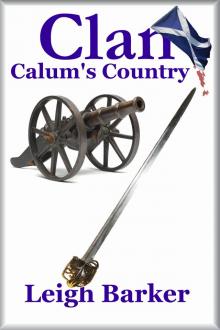 Clan: Season 3: Episode 1 - Calum's Country
Clan: Season 3: Episode 1 - Calum's Country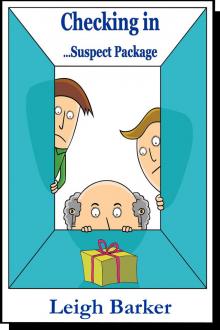 Checking In - Suspect Package
Checking In - Suspect Package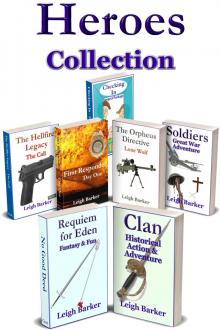 Heroes
Heroes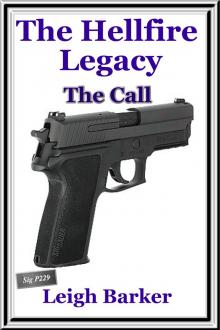 The Hellfire Legacy -The Call
The Hellfire Legacy -The Call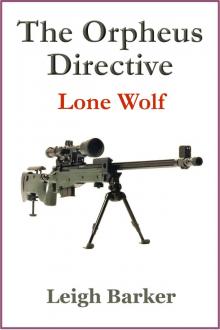 The Orpheus Directive: Lone Wolf
The Orpheus Directive: Lone Wolf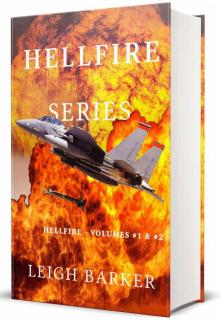 Hellfire- The Series, Volumes 1-3
Hellfire- The Series, Volumes 1-3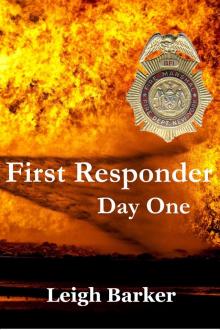 First Responder: Day One
First Responder: Day One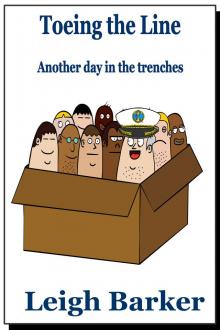 Toeing the Line
Toeing the Line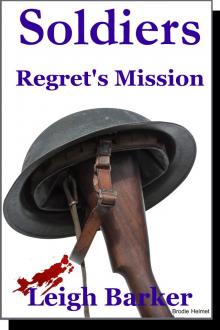 Regret's Mission - Inspired by the great Bernard Cornwell Sharpe
Regret's Mission - Inspired by the great Bernard Cornwell Sharpe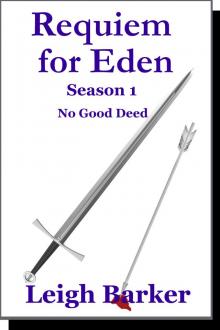 No Good Deed
No Good Deed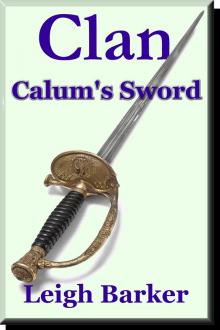 Calum's Sword
Calum's Sword